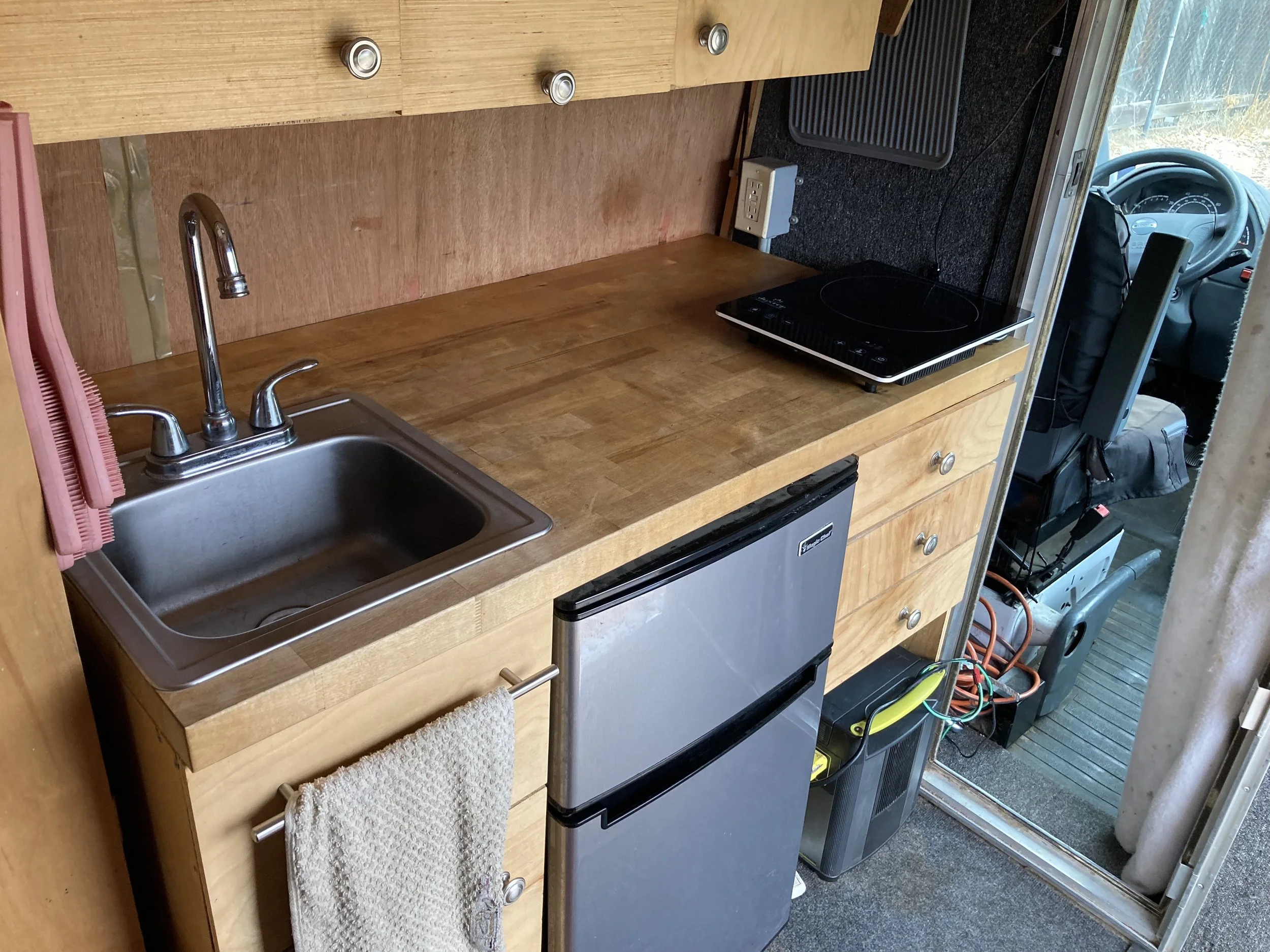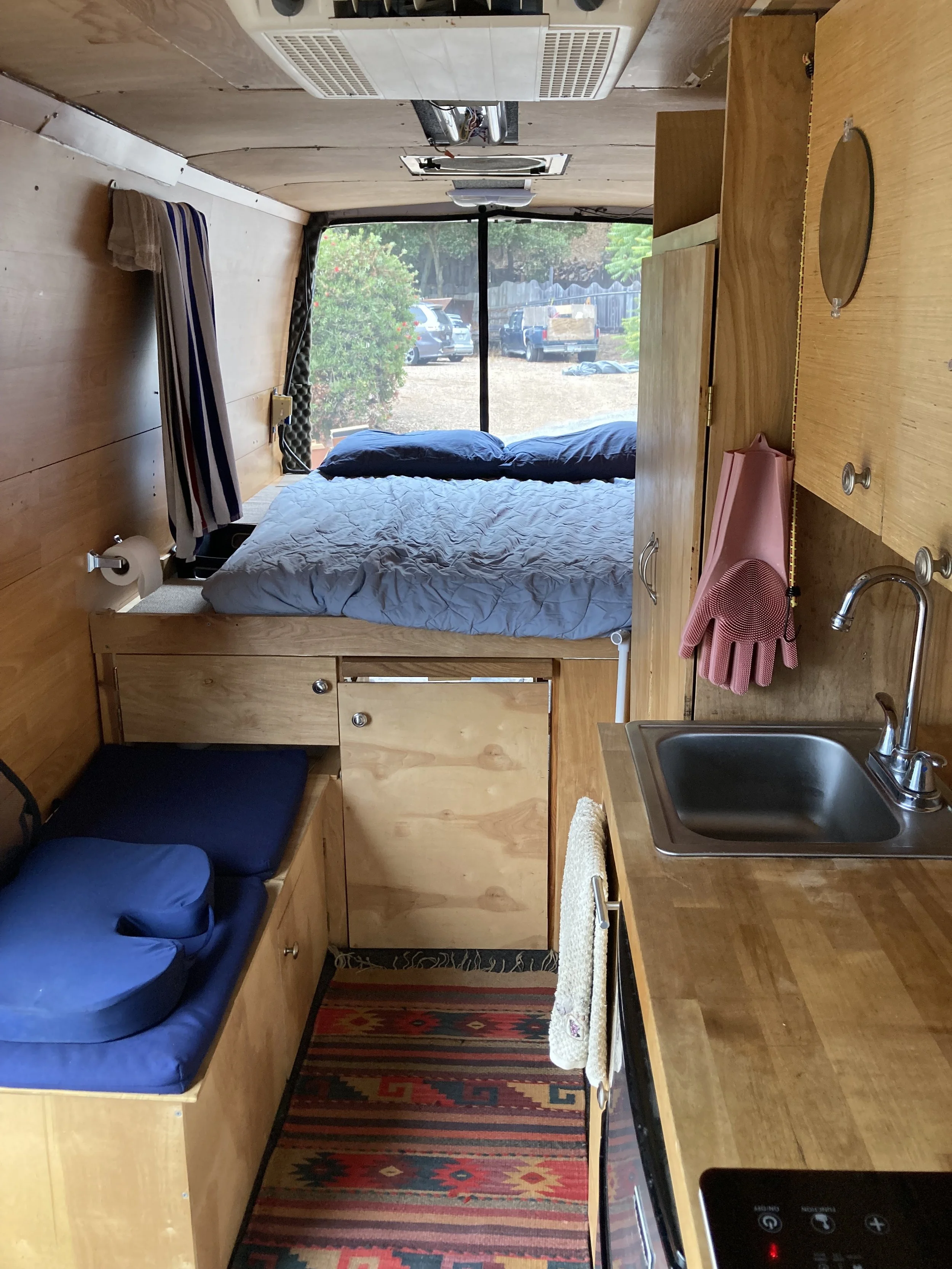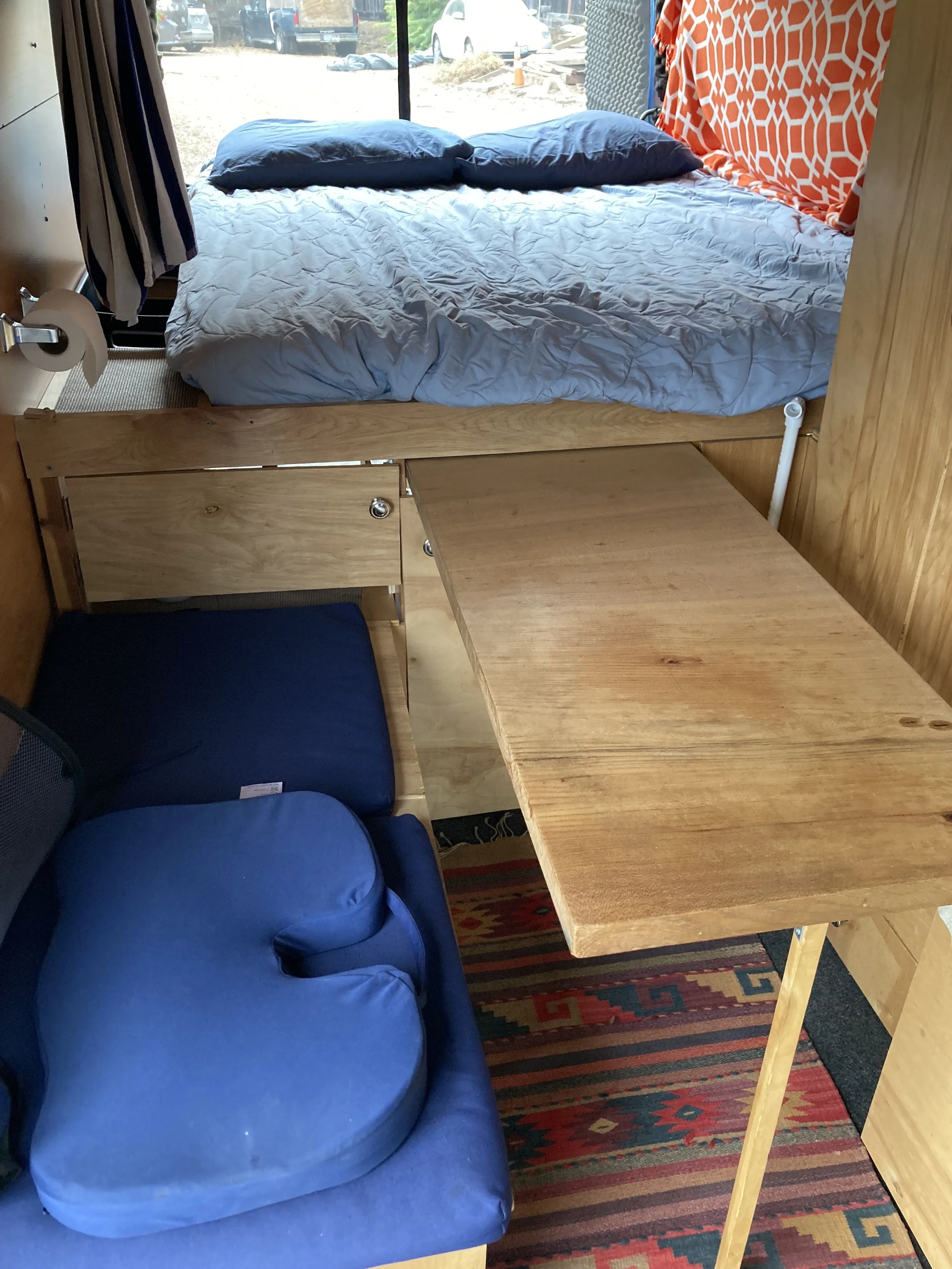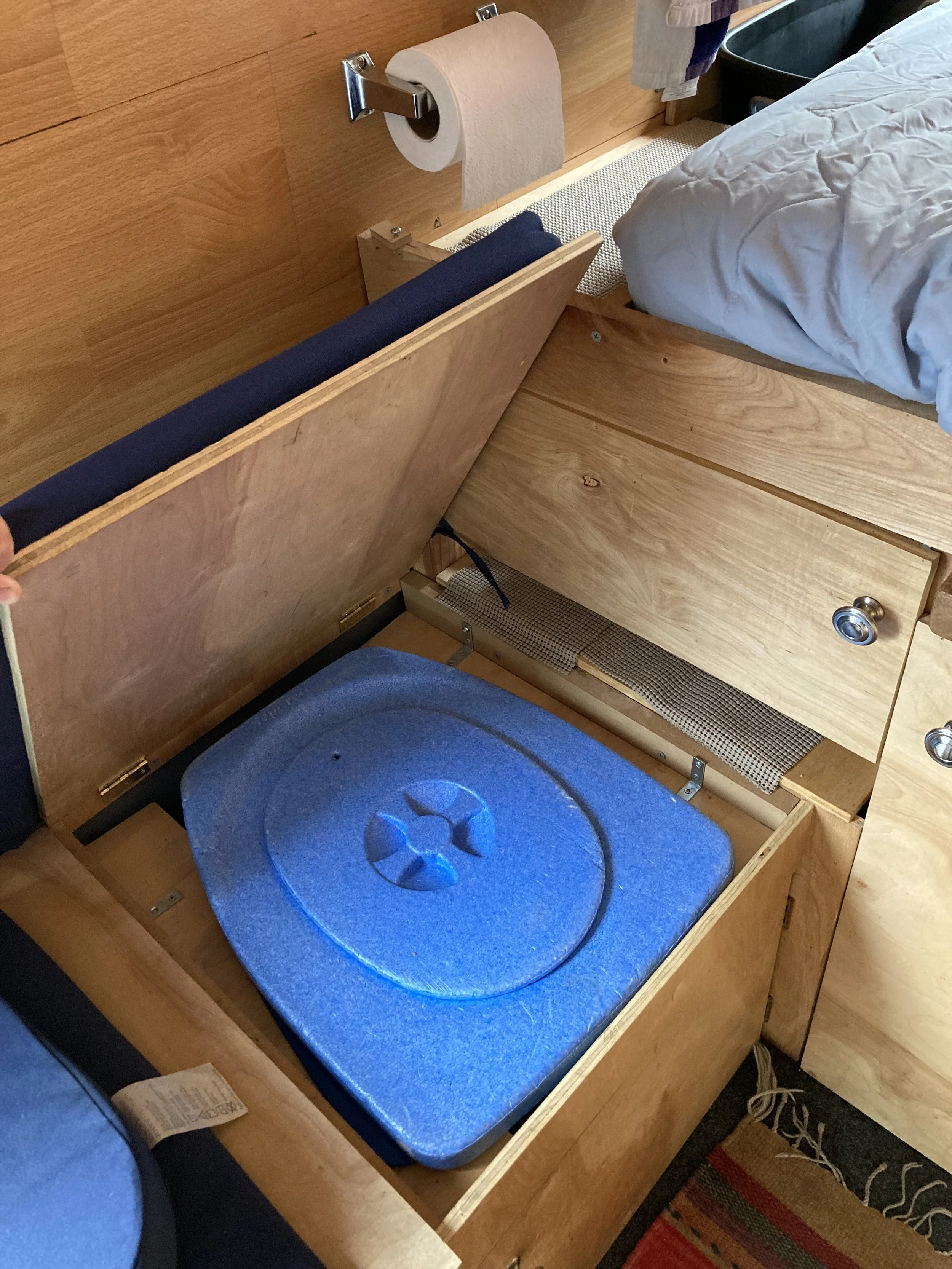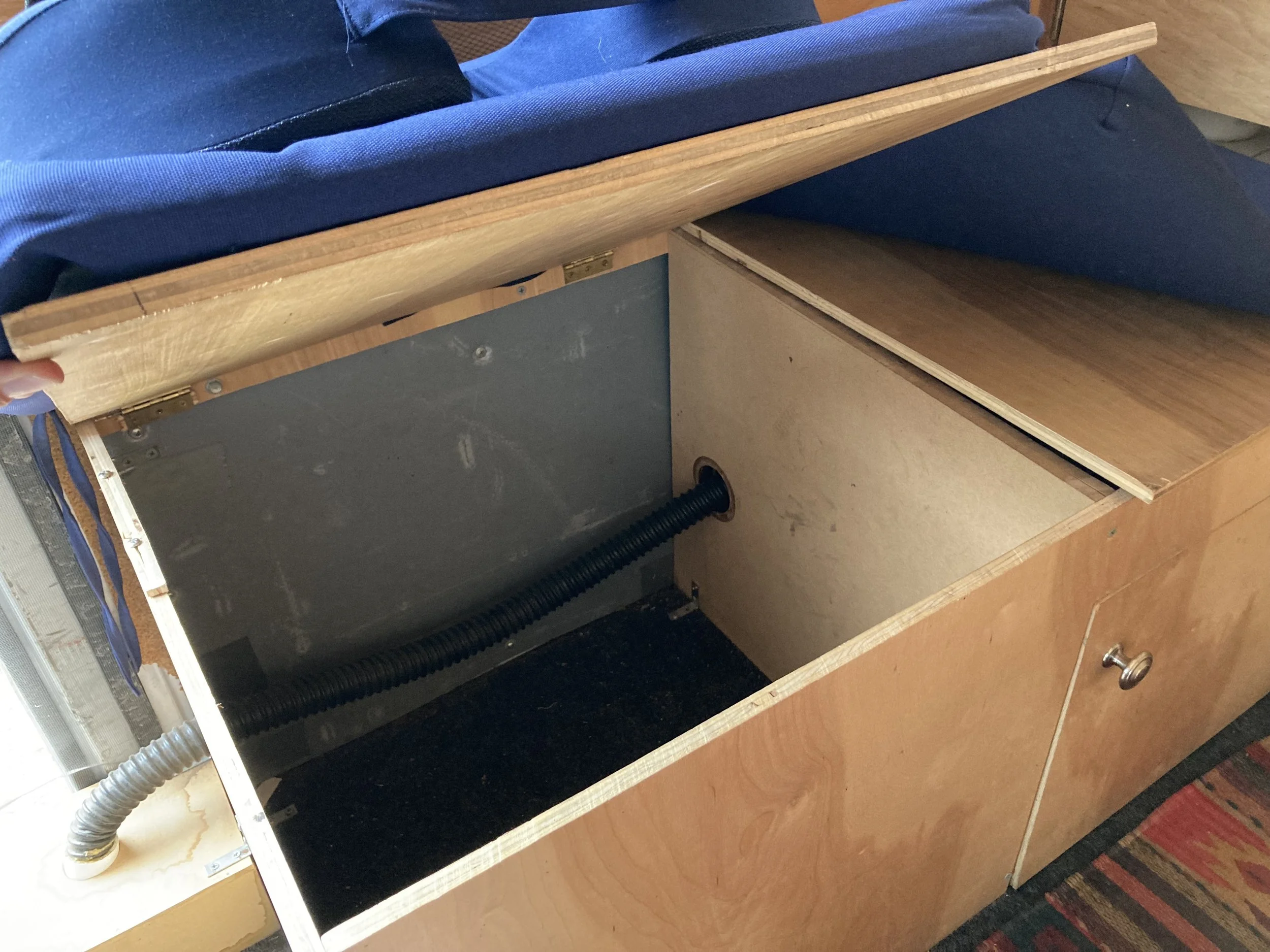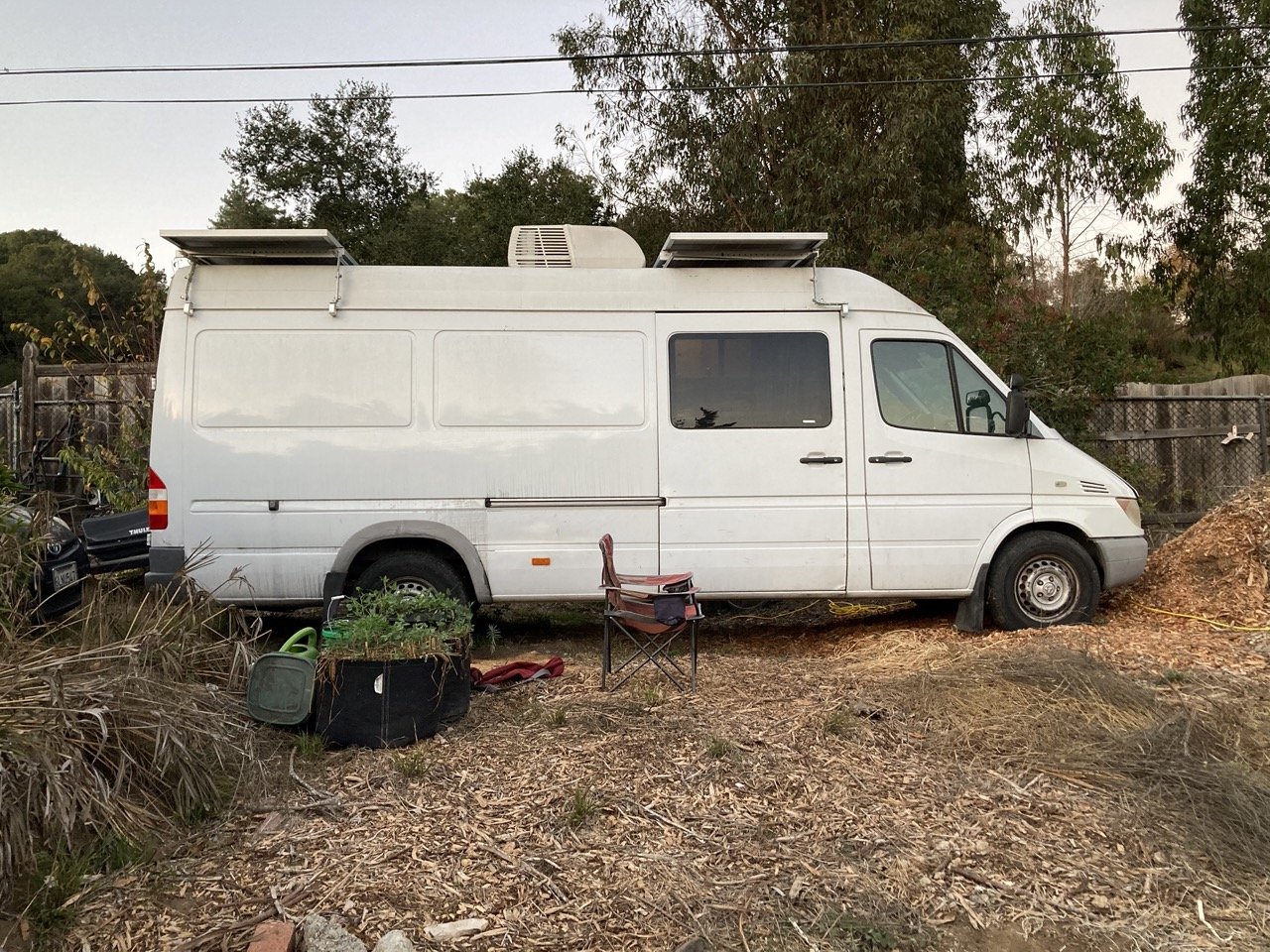
I dreamed of a fossil-fuel free, zero waste, minimalist lifestyle.
This is where I lived for a year and a half.
The PermaVan: All-electric tiny home with a greywater system, a composting toilet and an engine running on renewable diesel.
All electric: I knew from the beginning my home would be all-electric and powered by solar - I didn’t want to deal with the hazards and harmful fumes caused by gas appliances. I used two, 325 watt solar panel and a Goal Zero 3,000 watt power station to store and manage my energy. I cooked on an induction burner and heated water with a portable kettle. I installed the panels to tilt up 30 degrees in the winter to get more power, and used my diesel engine as backup power during multiple days of rain.
Fossil fuel free: Since electric vans were not yet commercially available and retrofitting one was outside my skillset, I realized that the only way to be fossil fuel free was to get a diesel engine and run it with alternative fuel. At first I thought biodiesel or used cooking oil would be the way, but then I learned about all the pitfalls and hassels associated with these options, and decided they wouldn’t be feasible. Then I learned about renewable diesel. Chemically identical to diesel, it is made from waste oil and commercially available at a number of gas stations (at least in California).
Zero waste: I wanted to reuse or recycle all my waste streams, and I knew that storing and pumping out greywater would be a hassle. So I designed my sink water to drain out the side of the van and hook up to a pipe flowing into a patch of bamboo, providing them with nutrients and water. I also designed a DIY composting toilet with a urine diverter. For the soil waste I used bokashi fermentation to neutralize it in a buck and then later buried it in the ground. The urine I emptied into a pile of composting wood chips (the high nitrogen of urine is a good combination for composting with the high carbon of wood chips).


